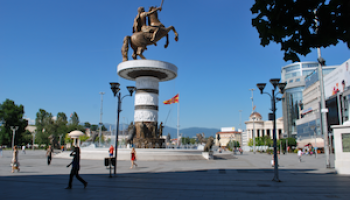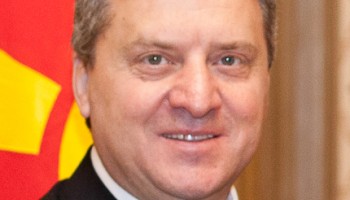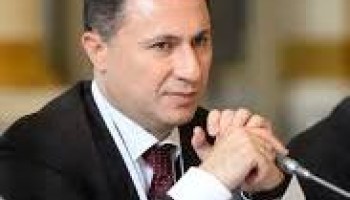Katica Janeva, a prosecutor from the southern town of Gevgelija, was unanimously voted in to the job after hours of EU-brokered negotiations between representatives of Macedonia's main political parties on Tuesday.
Janeva's appointment follows an earlier deal between the parties, who in June agreed to name a special prosecutor by Sept. 15.
On Wednesday morning, Janeva was sworn in before the Prosecutor's Council. She is to start appointing associates and pursuing investigations immediately.
Janeva faces a difficult task.
She is to investigate the claims of Zoran Zaev, leader of opposition party the Social Democrats (SDSM), who has since February released a series of recordings which he says prove Prime Minister Nikola Gruevski ordered the illegal surveillance of journalists, activists, ordinary citizens, and members of his own cabinet.
The tapes themselves, commonly referred to as Zaev's "bombs", were allegedly created in the course of such surveillance.
Zaev has claimed they feature the voices of several members of Gruevski's cabinet discussing a shopping list of criminal acts from corruption to misappropriation, attempted murder cover-ups and planned persecutions of political opponents.
Macedonian public life had hardly been calm prior to the series of press conferences at which Zaev dropped his "bombs". Citizen protests against labor law changes had been heating up throughout last winter.
Zaev's tapes added fuel to the fire, anti-government sentiment grew, and mass protests of tens of thousands of people broke out on May 5 demanding Gruevski's resignation.
Counter-protests staged by ruling party the VMRO-DPMNE, meanwhile, demanded that Zaev step down instead.
By the end of May the EU's European Enlargement Commissioner Johannes Hahn was ensconced in brokering the start of negotiations between the party leaders.
On top of naming a special prosecutor, the talks also resulted in an agreement to hold snap elections in Macedonia by April 2016.
According to Balkan Insight, the conditions for the special prosecutor approved in Parliament the same day she was named mean Janeva will have the power to choose her deputies and an unlimited number of associates during her four-year term.
To ensure her independence, Janeva will be the the head of a separate prosecutor's office that deals exclusively with illegal interception of communications.
She has an unlimited budget, but must justify her expenditures to Parliament.
The law was welcomed by Hahn on Twitter shortly after.
Despite an occasionally tortured negotiation to name the special prosecutor, both the SDSM and the VMRO-DPMNE – the two main actors in this year's political crisis – seemed pleased with the outcome.
Nova TV reports that Zaev described himself as "more than satisfied" with Janeva's selection.
Gruevski also expressed satisfaction, saying the special prosecutor would enjoy his full support.
Their harmony on the issue follows a row only two weeks ago when a court in Skopje ruled that Zaev's tapes could not be used in court against any official implicated by them, since – if genuine – they were illegally obtained.
The opposition accused the VMRO-DPMNE of influencing the court and trying to avoid the appointment of the special prosecutor.






